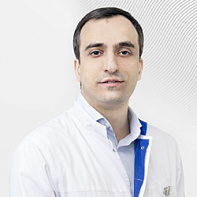Radical prostatectomy. Operations on the DaVinci robot
Prostate cancer is a malignant neoplasm that affects the prostate gland. Currently, prostate cancer ranks fourth among all oncological diseases in men. Due to the danger of this disease, it is recommended to conduct regular medical examinations, especially for men over 50 years of age.
In order to treat prostate cancer, radical prostatectomy is performed — an operation aimed at removing the prostate and surrounding tissues, including pelvic lymph nodes and seminal vesicles. The classic prostatectomy procedure can be performed using the perineal or posterior method.

Radical prostatectomy with perineal access
Surgical removal of the prostate gland through a small incision in the perineum, between the rectum and scrotum. If necessary, another operation will be required to remove the lymph nodes of the pelvis — a lymphadenectomy.
Radical prostatectomy with post-venous access
Surgical removal of the prostate through an incision in the lower abdomen. With this method, the doctor gets access not only to the prostate gland, but also to the seminal vesicles and pelvic lymph nodes. Therefore, no additional operation is required.
Robot-assisted radical prostatectomy
Robot-assisted radical prostatectomy is the most modern and high—tech method of prostate cancer treatment. Due to its minimally invasive nature, it requires less time to recover in the hospital and practically does not cause postoperative complications. In the USA and Western Europe, the vast majority of operations are performed using the Da Vinci robotic system.
The procedure is performed through several small incisions in the lower abdomen. A video camera is inserted into one of them, the image from which is displayed on the monitor, and the doctor can see everything that is happening inside. Surgical instruments are inserted into other holes, and surgery is performed with their help.
Advantages of the robotic method:
- thorough tissue dissection;
- reduction of injury;
- minimal blood loss;
- short period of hospitalization and rehabilitation;
- the possibility of performing nerve-saving surgery and maintaining potency in the future;
- after surgery, the likelihood of urinary incontinence is reduced to a minimum.
Lymphadenectomy in prostatectomy
Prostate cancer primarily metastasizes to the lymph nodes of the pelvis. To remove the affected lymph nodes, a lymphadenectomy is performed, which is also performed using the Da Vinci robotic system.
Postoperative period
One of the main advantages of minimally invasive surgery is rapid recovery. After the robotic prostatectomy, the patient stays in the hospital for 2 to 7 days. Whereas after open surgeries, rehabilitation takes 2-3 weeks.
Complications of radical prostatectomy
Urinary incontinence and erectile dysfunction can be common complications in the first period after surgery. The use of the Da Vinci robot allows you to maintain urine retention in 98% of cases and potency in 75%.
After surgery, there is a risk of thrombosis, which leads to cardiovascular failure. Drug therapy may be prescribed as a preventive measure.
Why do they trust us?
- An international team of doctors.
- American and European treatment protocols.
- Modern diagnostic equipment: MRI, CT and radiography with a minimum radiation dose, endoscopic examinations in conditions of drug-induced sleep.
- Treatment methods that relieve the patient of pain and discomfort on the day of treatment.
- Having your own hospital and physiotherapy department for quick recovery.
- The EMC Urological Clinic is currently the leader among private clinics in Russia in performing oncological, nephrological, andrological and urological operations using a surgical robot.
The professionalism of the doctors, high-tech equipment and high level of service make it possible to receive help at the level of leading foreign clinics.
Doctors







.jpg)
.jpg)


.jpg)



- He is a recognized expert in endoscopic urology.
- He has performed more than 5,000 endoscopic and open surgeries on the organs of the genitourinary system
- Member of the Russian Society of Urology, the Russian Society for Endourology and New Technologies, the European Urological Association, the World Endourological Society




